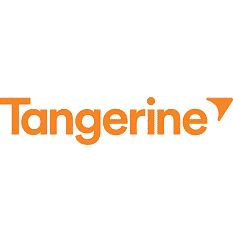The Best Canadian Joint Bank Accounts in November 2024
Joint bank accounts are a popular option for a person and their spouse, families, and business partners who want to manage their finances together.
A joint account allows two or more people to share access to the same bank account, making it easier to pay bills, save money, and track expenses. In Canada, many different banks and financial institutions offer joint accounts, each with its own set of features and benefits.
Choosing a joint bank account in Canada
When choosing a joint bank account in Canada, it’s essential to consider a few key factors. First, you’ll want to look at the fees associated with the account, including monthly maintenance fees, transaction fees, and ATM fees.
You’ll also want to consider the interest rates and other features the account offers, such as overdraft protection, mobile banking, and online bill payment.
Finally, you’ll want to think about the level of customer service and support the bank provides and any additional perks or rewards that may be available.
Banks offer quite a few perks these days, so it is good to decide how you will use the account, and then see if the account that meets your needs provides added incentives for opening one.
For example, suppose a couple decides they will use a joint bank account for a significant amount of savings in addition to expenses. In that case, a high-interest savings account could make the most sense.
The best joint accounts are those that fit our unique goals and needs. So, it is critical to dive deep into the particulars of accounts from various banks and see which is most applicable.
Let’s look at some well-known institutions and their joint account offerings.
Reader beware: products and offers can change from time to time, so always double-check the current details from prospective banks.
Which is the Best Joint Bank Account in Canada?
- Equitable Bank
- Wealthsimple Save
- Tangerine
- Simplii
- KOHO
- Scotiabank
EQ Bank

We are first zoning in on EQ Bank’s Personal Account, (formerly the Savings Plus Account), which I feel is the best joint account in the country. In fact, I use it myself with my wife.
This EQ Bank joint account has the unique perk of doubling as a high-interest savings account. EQ Bank Joint Personal Account offers up to 3% interest on your savings. The joint personal account also comes at no fee, no minimum balance requirements, and unlimited transactions for up to 3 people.
This account is accessible to Canadians over the age of majority in their province.
With the Equitable Bank Card, you can also get cash back on purchases with it, accelerating your savings even more. You’re allowed one card per person, and they’re very easy to preload directly from the joint account itself.
In addition to this, they’ll refund your ATM fees from any platform in Canada. This is a huge perk and a necessity really for a company that has no physical locations.
Wealthsimple Save

A Wealthsimple Save account is a pretty solid option for those who want to open up a joint account here in Canada.
No, it doesn’t offer the high interest rates that Equitable Bank does, but it is still very competitive and if you can open up both a Save account and a Wealthsimple Cash account, you can even earn upwards of 4%, which is higher than Equitable. Conditions apply, mainly the amount of money you have, but it’s worth looking into.
If you’re looking to open up a joint Save account, all you need to do is head to Wealthsimple’s website and follow the instructions. Unlike many major institutions who require you to go into a branch, most digital institutions don’t even require you to leave your computer chair to set up an account.
You’ll earn 1.5% interest on your deposits, and there is no fees with the account.
Tangerine Bank

Tangerine joint accounts are offered for their non-registered savings accounts and chequing accounts, with up to 4 clients for the savings account and up to 2 clients for the chequing account.
Each person who would be connected to the joint account needs to be a Tangerine client with their own account already.
With Tangerine being an online only bank (owned by Scotiabank), they tend to offer better interest on their savings products. So, I definitely view it as one of the best joint bank accounts out there if you don’t need the service of a physical location.
You also gain access to Scotiabank ATMs for free. However, this is trumped by Equitable Bank, which offers free ATM withdrawals from anywhere.
Simplii Financial

Simplii Financial also offers several accounts that can be modified into joint bank accounts, including accounts that do not have a monthly account fee.
A restriction with Simplii is that the joint account can only be opened with one other person.
Their interest rates are lacking in comparison to Tangerine or Equitable.
However, they do try to make up for this in other ways, like sign up bonuses.
Simplii has some attractive signup bonuses for new accounts from time to time. Don’t miss checking their website to see what they are currently offering.
KOHO

KOHO is an online bank in Canada that offers a free joint account for $0 per month.
Each person can have only one joint account, and that joint account can only have 2 total clients on the account.
Again, KOHO is one of our digital banks in Canada, so the whole process can be done online, which is super handy compared to having to travel to a branch.
The digital only aspect of KOHO also allows it to offer a little more attractive options than brick and mortar banks.
For example, you can earn cash back on all purchases, participate in its RoundUps program to accelerate your savings, and even get 2 free KOHO cards for each person on the account.
I’d view this as the weakest out of any of the digital only joint accounts. However, it is still much better than a brick and mortar option, unless you’re a stickler for banking with a major institution.
Scotiabank

Scotiabank is the only major institution worth mentioning because it’s the only joint account that really offers any perks. And keep in mind, the perks are nowhere even close to the banks listed above.
For example, you’ll only earn around 0.1% on your balance, while Equitable and Wealthsimple pay 30 times this, or even more.
With the Scotiabank Ultimate Package attached to one of your joint accounts, you can get unlimited debit transactions, no overdraft protection fee, unlimited e-Transfers, and even possibly free trades through their investing platform Scotia iTrade.
Sometimes, they even have pretty sizable welcome bonuses in excess of $300 if you meet the conditions.
Some Scotiabank accounts can be made into joint bank accounts, including the Scotiabank Ultimate Package. Some forms will need to be filled out to sign up, and you’ll need two pieces of identification, such as a driver’s license and a birth certificate.
The other major institutions like Royal Bank, CIBC, TD, and BMO offer joint bank accounts, but they are run of the mill accounts and I’d really only suggest opening one there if it is for convenience and you’re not looking to get the added benefits of a digital only bank.
Do I need a joint bank account?
Ultimately, the best joint bank account for you will depend on your individual needs and preferences. It’s important to do your research and compare different options before making a decision.
By choosing the right account, you can streamline your finances and achieve your financial goals together much easier.
Now that we’ve gone over what the best options are, lets dive into
What is a joint bank account?
A joint bank account is a type of bank account that two or more individuals own. Joint bank accounts can be either a joint chequing account or a joint savings account.
In some cases, even business owners can have joint accounts.
The benefits of a joint bank account
One of the benefits of a joint bank account is that it allows for easy sharing of expenses and finances. For example, couples can use a joint account to pay for shared costs such as rent, utilities, and groceries.
This helps organize funds and saves the hassle of having to constantly transfer money to each other. My wife and I contribute a particular amount of money each week out of our individual accounts into our joint account, and that joint account is used to fund all bills.
Business partners can also use a joint account to manage company finances and expenses.
Drawbacks of a joint account
However, it is essential to consider the potential risks and drawbacks of a joint bank account.
When opening a joint bank account, it is crucial to understand that all account holders have equal ownership and control over the account.
Any account holder can withdraw or spend all the funds in the account without the permission of the other account holders.
This can lead to disputes and financial problems if one account holder mismanages the account or uses the funds for personal expenses.
It is also important to note that joint bank accounts are considered marital assets in the event of a divorce or separation.
This means the account balance could be divided between the account holders in a legal settlement.
Joint bank accounts are no doubt a hot topic
Some people believe in abandoning personal bank accounts in marriage, and others believe in maintaining personal accounts outside of the joint account.
After all, people separate, businesses dissolve, life changes and then we are left dealing with the potential fallout of that meshed finances and financial activity.
However, even if people stay together, maintaining a personal credit history is not a bad idea. This means couples have their own bank accounts, lines of credit, debit cards, and credit cards.
A credit score is a pretty big deal in North America, and it is worth maintaining and improving that for yourself, even if you are married.
A combination of both accounts is best
If two people in a relationship decide to keep their personal bank accounts and cards, it does not mean they cannot still have the joint accounts they need. This is exactly what I do.
Maybe a person shares a joint bank account with their spouse; together, they use some travel credit cards via that account to build rewards points so they can occasionally grab their passport and take off on a cheaper vacation with their partner. Then, they have their own personal account to fund their own activities.
Bank accounts and credit are simply tools for managing one’s finances and building a credit score. Ultimately, it is important to maintain our personal financial health and identity.
With the plethora of different bank accounts available today, getting the best of both worlds is possible. We can be both a joint-account holder and personal account holder, no problem.
What types of joint bank accounts are there?
Joint chequing account
A joint chequing account is a bank account that two or more people own together. Couples often use this account to share expenses and manage their household finances.
With a joint chequing account, both account holders have equal access to the funds. They can make deposits, withdrawals, and payments.
Joint savings account
A joint savings account is a bank account that is owned by two or more people. This type of account is often used by couples or family members who want to save money together for a specific goal, such as a vacation, a down payment on a house, or a child’s education.
With a joint savings account, both account holders have equal access to the funds and can make deposits and withdrawals, and they often give a higher rate of savings than a chequing account.
Joint business account
Although rare, some business owners would rather operate out of a joint account. In addition to this, if you are the co-owner of a corporation, it is likely you and your business partner have equal rights to the corporate bank account, technically making it a joint account.
Which joint bank account should I get?
As you can see above, the characteristics can vary in a similar product from one bank to the next. Here are just a few examples that can make a big difference for people depending on their needs:
- Limits on additional clients on the account
- Interest rates on savings
- Bonuses for new accounts or new customers
- Monthly or annual fees
- Additional benefits for other products the bank offers
- Physical presence is required at the branch to apply for the account, or simply an online process only
Deciding which joint account will work for you really just takes looking at each perk for each bank account and seeing which is most applicable to your situation. But the good thing is there is this variance in accounts. So people can indeed pick the one account that is best for them.
Features of joint bank accounts
When it comes to joint bank accounts, there are many features that can make them a great option for couples, families, or business partners. Here are some of the key features to consider:
Transactions and payments
Joint bank accounts allow for multiple people to make transactions and payments from the same account.
This can be helpful for couples who want to split expenses or for business partners who need to make purchases for their company.
With a joint account, both parties have equal access to the funds and can make transactions without needing permission from the other account holder.
One feature you need to consider, especially among the digital institutions, is the availability of a debit card and the functionality of it. I have the EQ Bank card, and my spouse has another one. We then utilize both of these cards funded from our joint account for everyday purchases.
Fees and minimum balances
Some joint bank accounts may have monthly fees or require a minimum balance to be maintained. This is even more prominent when it comes to the major banking institutions here in Canada. You will be hard pressed to find a digital bank that charges a fee. However, many Canadians are sticklers or simply comfortable with the major institutions. Just know it comes at a cost.
It’s important to compare different account options to find one that fits your needs and budget.
Additionally, some accounts may offer perks like free transactions or high interest rates for maintaining a certain balance.
Overdraft protection
Overdraft protection can be a helpful feature for joint accounts, as it can prevent unexpected fees or declined transactions.
Bill payments and withdrawals
Joint accounts can make it easy to pay bills and make withdrawals for shared costs.
However, it’s important to keep track of transactions and ensure that both account holders are aware of any withdrawals or payments made from the account.
In addition to this, digital banks do make the withdrawal process a bit more difficult. You can’t just walk into a branch and pull out money. To counteract this, many of them offer repayment of ATM fees which essentially makes any brick and mortar bank a branch you can easily access.
Joint Bank accounts for different relationships
Joint bank accounts can be a convenient way to manage finances for different relationships. Here are some examples of how joint bank accounts can be used.
Couples
Joint bank accounts are popular for couples who want to share costs and manage their finances together.
With a joint bank account, both partners have equal access to the account and can deposit or withdraw money as needed.
This can be especially useful for paying bills, rent or mortgage, and other joint expenditures.
Parents and Children
Parents and adult children may also choose to open a joint bank account for various reasons. For example, parents may want to help their children save money or teach them about financial responsibility.
As we move more and more towards a cashless society, a simple e-Transfer of a childs allowance could allow them to utilize a debit card at school to buy food, participate in school activities, or more.
It’s certainly a lot more convenient than it was in my school days when my parents would just give me $4 for lunch!
In addition, a joint bank account can also help manage costs related to caregiving for aging parents.
Business Partners
Business partners may choose to open a joint bank account for their business. This can make it easier to manage finances and keep track of costs related to the company.
It can also help to establish trust and accountability between partners.
Friends and Roommates
Friends or roommates may open a joint bank account to manage shared expenses such as rent, utilities, or groceries.
This can be a convenient way to split bills and avoid disputes over who owes what.
Choosing the right joint bank account
When choosing a joint bank account in Canada, it is important to consider the needs and preferences of both account holders. Here are some factors to keep in mind:
Account type
Different types of joint bank accounts are available in Canada, including chequing, savings, and investment accounts. Each account type has its features and benefits, so it is important to choose the one that best suits the needs of both account holders.
Bank or financial institution
When choosing a joint bank account, it is important to consider the reputation and reliability of the bank or financial institution. Look for a bank with a strong customer service and financial stability track record.
Account fees
Joint bank accounts may come with fees, such as monthly maintenance fees, transaction fees, and overdraft fees. It is important to compare the fees of different banks and financial institutions to find the one that offers the best value.
Account features
Different joint bank accounts may have other features like online banking, mobile banking, and ATM access. Consider the desired features of both account holders and choose a bank that offers them.
Account ownership
When opening a joint bank account, it is important to consider the ownership structure. Joint accounts can be set up as either joint tenants with rights of survivorship or tenants in common.
Joint tenants with rights of survivorship means that if one account holder passes away, the other account holder will automatically inherit the account. Tenants in common means that each account holder owns a specific percentage of the account, which can be passed on to heirs.
In conclusion, choosing the right joint bank account requires careful consideration of several factors, including account type, bank or financial institution, fees, features, and ownership structure.
